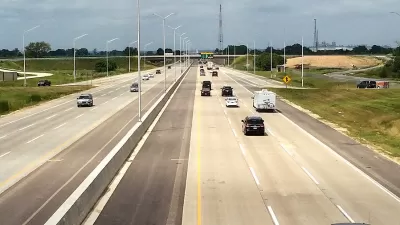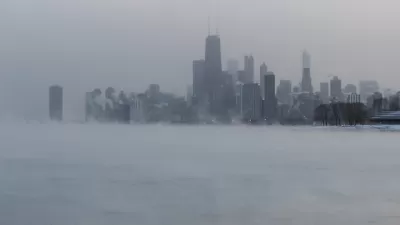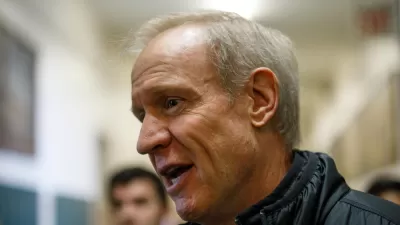According to a recent op-ed, the Illiana Expressway "was built upon faulty assumptions, and motivated largely by crony intentions."
Austin Berg of the Illinois Policy Institute writes: "It may be the only statewide issue that fiscal conservatives, Chicago politicians, environmentalists, urban planners, legacy media and transportation experts can all agree on: The Illiana Expressway is a bad idea."
These groups must have released a sigh of relief around the state of Illinois when Governor Bruce Rauner announced that he ordered the Illinois Department of Transportation to suspend the project, saving $100 million toward a state budget shortfall of $4 billion next year.
The problem with the Illiana Expressway, according to its critics, is that "the Illiana would 'eat itself,' as planners had vastly overestimated the growth in vehicle miles over the next 30 years in the rural, sparsely populated area, and the tolls charged could have reached as much as four times more than other Illinois tollways, further driving down the number of users."
Berg's article makes an argument against the project, which is still eligible for federal funding, to be killed completely. The nail in the coffin for the project, according to Berg, would be to sell the land the state had acquired in prepartation for the project. The state has already spent $61 million in planning and land acquisition for the project.
FULL STORY: KILLING ILLIANA: CLOSING THE ROAD TO NOWHERE A WIN FOR ILLINOIS

Planetizen Federal Action Tracker
A weekly monitor of how Trump’s orders and actions are impacting planners and planning in America.

Maui's Vacation Rental Debate Turns Ugly
Verbal attacks, misinformation campaigns and fistfights plague a high-stakes debate to convert thousands of vacation rentals into long-term housing.

San Francisco Suspends Traffic Calming Amidst Record Deaths
Citing “a challenging fiscal landscape,” the city will cease the program on the heels of 42 traffic deaths, including 24 pedestrians.

Amtrak Rolls Out New Orleans to Alabama “Mardi Gras” Train
The new service will operate morning and evening departures between Mobile and New Orleans.

The Subversive Car-Free Guide to Trump's Great American Road Trip
Car-free ways to access Chicagoland’s best tourist attractions.

San Antonio and Austin are Fusing Into one Massive Megaregion
The region spanning the two central Texas cities is growing fast, posing challenges for local infrastructure and water supplies.
Urban Design for Planners 1: Software Tools
This six-course series explores essential urban design concepts using open source software and equips planners with the tools they need to participate fully in the urban design process.
Planning for Universal Design
Learn the tools for implementing Universal Design in planning regulations.
Heyer Gruel & Associates PA
JM Goldson LLC
Custer County Colorado
City of Camden Redevelopment Agency
City of Astoria
Transportation Research & Education Center (TREC) at Portland State University
Jefferson Parish Government
Camden Redevelopment Agency
City of Claremont





























